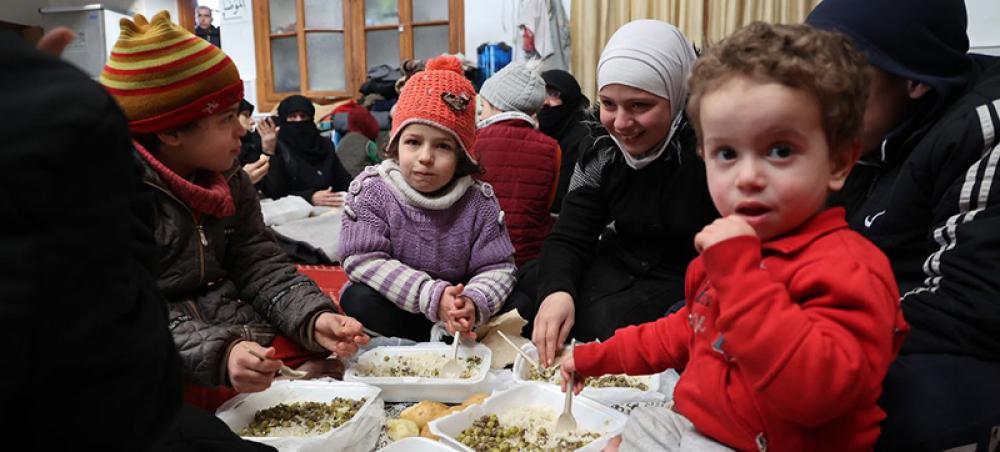Just Earth News | @justearthnews | 14 Jun 2023, 04:32 am Print
 Syria
Syria Image: WFP/Hussam Al Saleh
New York: An unprecedented funding crisis in Syria has forced the UN World Food Programme (WFP) to announce cuts to aid being provided for 2.5 million of the 5.5 million people who rely on the agency for basic food needs.
The announcement comes as the European Union gears up to host the seventh Conference on Supporting the Future of Syria and the Region, beginning on Wednesday in Brussels.
WFP took the decision, after exhausting all other options, to prioritize the three million Syrians who are unable to make it from one week to the next without food assistance, the agency said in a press release, rather than continue providing aid to 5.5 million people, which would mean running out of supplies completely by October.
Bleak scenario
Tweet URL
“Instead of scaling up or even keeping pace with increasing needs, we’re facing the bleak scenario of taking assistance away from people, right when they need it the most,” says WFP Representative and Country Director in Syria, Kenn Crossley.
After 12 years of conflict, massive displacement, a global pandemic pushing prices to record highs, and most recently, devastating earthquakes, Syrians have been living in a perpetual state of emergency, said WFP.
Currently, an average monthly income covers only around a quarter of a family’s food needs.
Over the past couple of years, WFP said it had taken every measure possible to stretch available resources, including the gradual reduction of the size of the monthly food ration, to half its former size.
And now, WFP is facing the challenge of increased needs at a pace that funding has not been able to match, amidst rising food and fuel prices.
Impossible ask
"Further reductions in ration size are impossible. Our only solution is to reduce the number of recipients”, said Mr. Crossley. “The people we serve have endured the ravages of conflict, fleeing their homes, losing family members and their livelihoods. Without our assistance, their hardships will only intensify”.
Even before last February’s earthquakes that hit the north and west of Syria causing widespread damage, loss of lives and displacement, 12.1 million people across the country were in the grip of hunger.
Malnutrition rates are at an all-time high too, the agency said, with one in four pregnant and nursing mothers acutely malnourished, and one in four children stunted in some parts of the county.
Future at risk
Without adequate and timely food assistance, Syria's next generation and its entire future are at risk.
“We have the capacity and solutions to reduce dependency on humanitarian assistance and make a lasting difference in people’s lives,” Mr. Crossley said. “It's critical that we keep providing life-saving food assistance to help families get through each week and each month, while we work on interventions that help people rebuild their lives and get back standing on their feet.”
He added that aid partners “have been instrumental in preventing such cuts before, particularly over the past two years. Now, we count on them to prevent irreversible harm to the Syrian people’s future. The time to act is now,” he urged.
- Viral Irish food bank photo sparks shocking racist attacks on Indians
- Caught on camera: Two foreigners assaulted in Israel in an alleged racial attack
- Pakistan: Parents heartbroken after court sides with man accused of kidnapping minor Christian girl
- Pakistan: Trafficked 35 years ago, Bangladesh-born woman approaches court against FIA for offloading her from flight!
- Hindu tea worker found bound and bloodied in Bangladesh garden during general elections; investigation underway





-1763561110.jpg)
